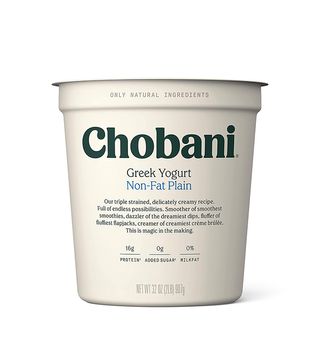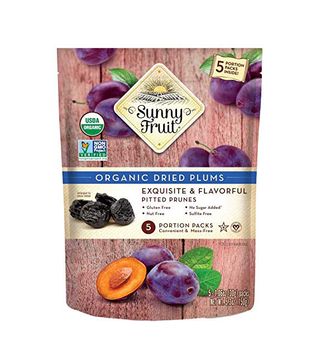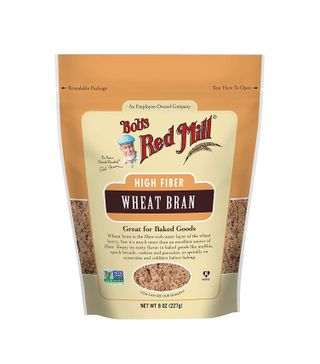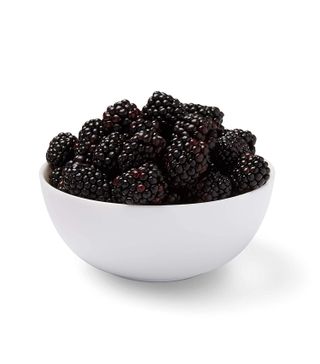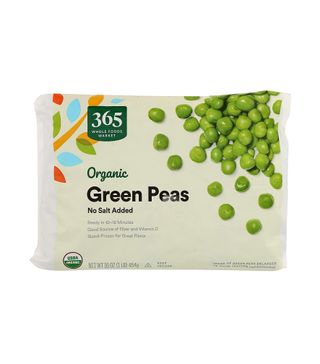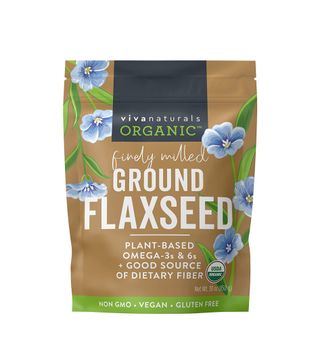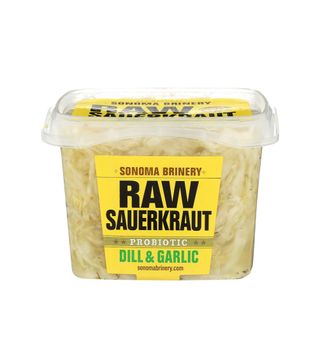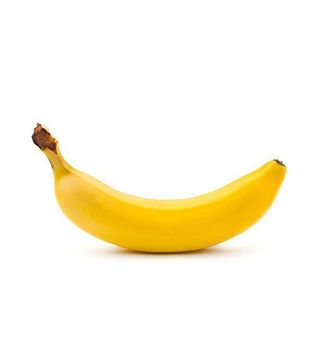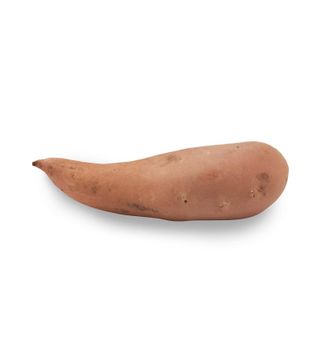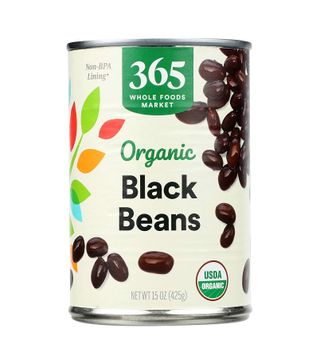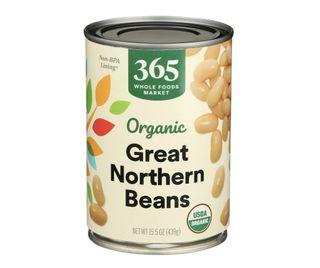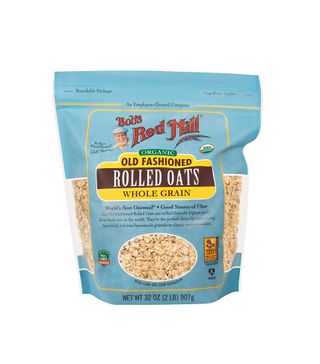Eat These 12 Foods If You Want to Be, You Know, More Regular

Okay, we're going to talk about something that is far from glamorous today: constipation. But it has to be done because guess what: We've all probably experienced this uncomfortable condition at least once in our lives, and it's not fun, right?
The medical definition of constipation, according to The Mayo Clinic, is "infrequent bowel movements or difficult passage of stools that persists for several weeks or longer." In general, it's categorized as having fewer than three bowel movements a week. Some people might have occasional constipation, while others experience chronic constipation, which has additional symptoms like feeling "blocked" or like you can't completely empty yourself; straining; and/or having hard or lumpy stools.

"Constipation can have so many causes, including dehydration, lack of dietary fiber, lack of exercise, and a change in routine such as travel," explains Sarah Rueven, RD, MS, CDN, founder of Rooted Wellness. "Stress and anxiety can also play a role in GI changes like constipation. When we feel anxious, nervous, or stressed, our brain releases hormones that can then affect the nerves in our GI tract, leading to changes in bowel habits such as constipation or diarrhea." And there might be other causes like medications or supplements that are affecting your regularity. Or you could have an underlying medical condition like irritable bowel syndrome (IBS) or colorectal cancer.
Also, some people are more susceptible to constipation. According to The Cleveland Clinic, older people and women who are pregnant or have just given birth are two groups might experience it more. Rueven recommends that anyone experiencing a sudden change in bowel habits speak to their doctor to see if it's a sign of another condition.
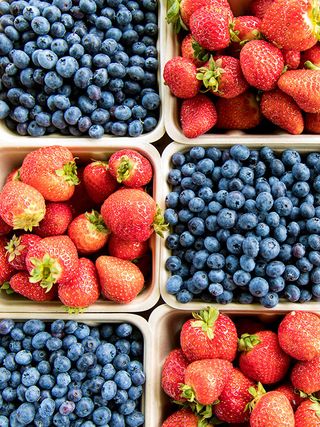
And while constipation can be so frustrating and worrying at times, there are some things you can do to relieve it or avoid it altogether. The Cleveland Clinic suggests regular exercise as a way to both treat and prevent it. Also, experts there suggest even looking at how you sit on the toilet, as raising your feet, leaning back, or squatting might help.
"If you are experiencing constipation, I would recommend looking at your diet and lifestyle first, as often, making small changes in what you are eating and drinking can help solve the problem," Rueven says. "With my clients, I always start by looking at their intake of fiber-rich foods (fruit, vegetables, whole grains, and legumes). Fiber, and in particular insoluble fiber, is what helps speed up intestinal transit time and prevent constipation. Good sources of insoluble fiber include whole grains, nuts, seeds, certain vegetables and fruit with the skin."
Rueven also recommends that women consume at least 25 grams of fiber per day and men should have 38 grams. A healthy gut microbiome is key, too. "We can support our gut microbiome by eating adequate fiber and prebiotic-rich foods," she explains. "Prebiotics are compounds found in plants that feed the healthy bacteria living in our gut. Prebiotic-rich foods include garlic, onions, asparagus, apples, and Jerusalem artichokes."
She outlined some more foods to relieve or prevent constipation below.
1. Yogurt
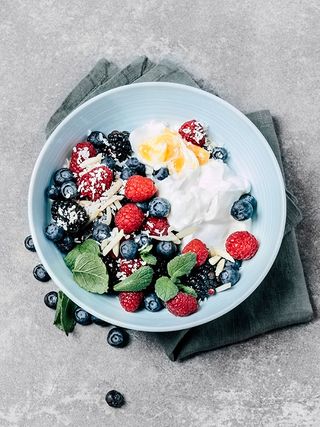
"Yogurt contains live, beneficial bacteria, which help keep our gut healthy and in turn help to keep our GI tract running smoothly," Rueven says. "I love plain Greek yogurt because it is higher in protein and lower in sugar than other forms of yogurt. Mix in some berries and ground flaxseeds for a high-fiber treat!"
2. Water

Okay, no, water isn't exactly a food, but you need to up your intake and make it a priority in your diet if you want to avoid constipation. "Without adequate hydration, stools can become dry and hard to pass," Rueven says. "Aim for eight to 10 cups of water per day and eat a variety of hydrating fruits and vegetables like tomatoes, cucumbers, apples, watermelon, and lettuce."
3. Prunes
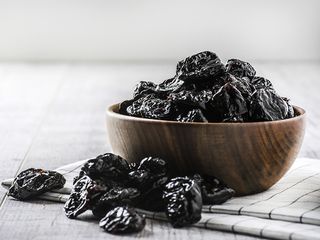
Prunes might not be seen as the "coolest" food out there, but they really can get things moving, if you know what I mean. Rueven adds that the dried fruit contains insoluble fiber and sorbitol, which is a natural laxative that pulls water into the large intestine.
4. Wheat Bran
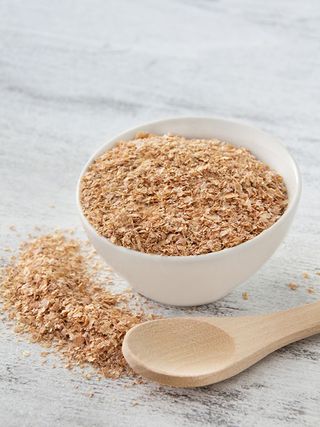
Wheat bran is the outer layer of the wheat kernel and is made of insoluble fiber that helps bulk stools and get things moving in your GI tract.
5. Blackberries
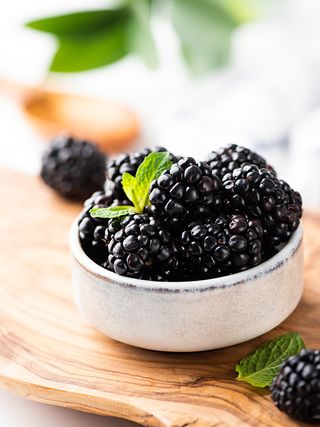
These delicious fruits are another source of insoluble fiber. Rueven says that because we eat berries with the skin on, they contain a good amount of fiber.
6. Green Peas
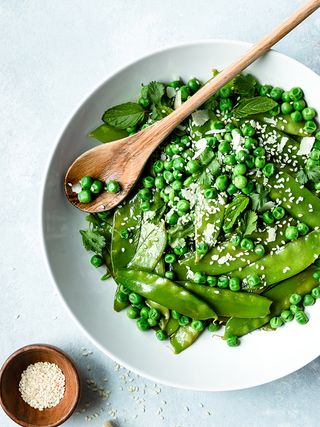
Eat your peas, please! They contain about 15 grams of insoluble fiber per one cup serving. Rueven says she always keeps a bag of frozen ones in her freezer so she can easily add them to stir-fries or soups. "Green peas are a great source of insoluble fiber, containing about 15 grams per one-cup serving! I always keep a bag of frozen green peas on hand because they are just so easy for adding to stir-fries or soups.
7. Flaxseeds
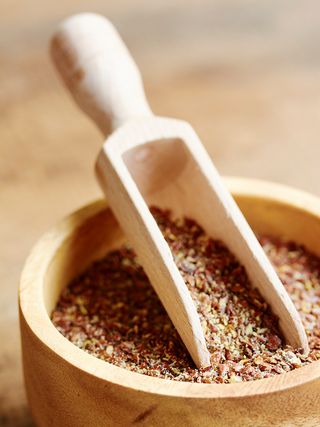
"Flaxseeds are a good source of fiber, and studies have shown that regular consumption of ground flaxseeds may improve constipation in individuals with constipation-dominant IBS," Rueven says. "Always buy ground flaxseeds (or grind them yourself!) as they will pass through the GI tract undigested in their whole form, and you won't reap their benefits!"
8. Sauerkraut
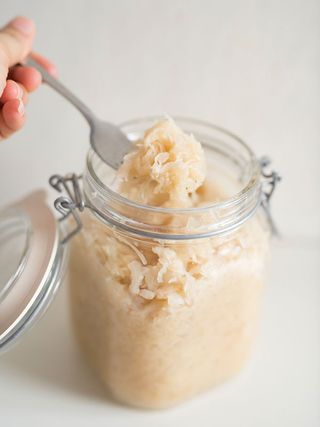
Sauerkraut is a gut win because it contains live probiotics that help promote good digestion. According to Rueven, a study found that just two tablespoons of sauerkraut contain the same amount of bacteria as a probiotic supplement.
9. Bananas
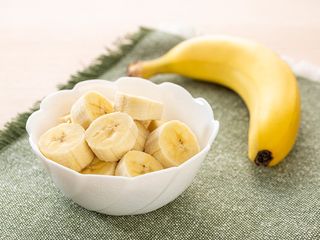
"Bananas can help to de-bloat because they contain potassium, a nutrient which helps to rid the body of excess sodium and fluid," Rueven says. "Bananas are also a good source of prebiotic fiber, which helps to feed the healthy bacteria in our gut."
10. Sweet Potatoes
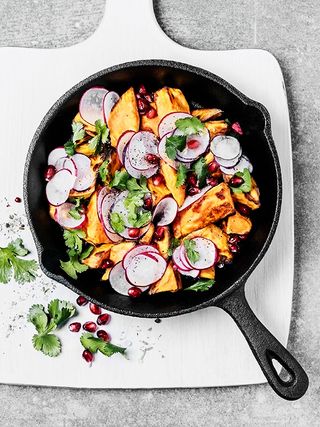
To get the most fiber out of a sweet potato, Rueven suggests eating it with the skin on since that's where the majority of the fiber is found.
11. Beans
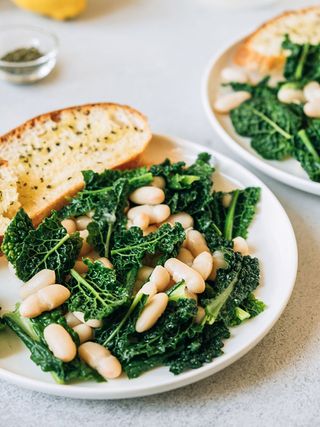
What's that rhyme about beans making you toot and making you feel better? Well, it's true because all kinds of beans are an excellent source of concentrated fiber. Rueven says one cup of beans has more than 10 grams of fiber.
12. Oats
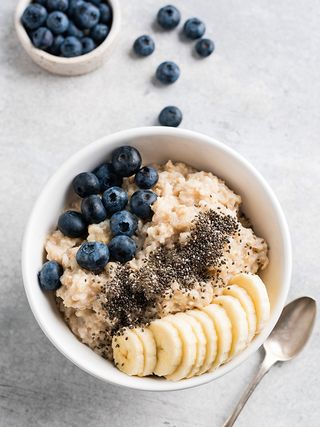
"Oats contain soluble fiber," Rueven says. "While we typically think of insoluble fiber as the type of fiber that helps prevent and relieve constipation, soluble fiber also plays a role. Soluble fiber pulls water into the GI tract, which helps to soften stools and make them easier to pass."
Next up: 11 Foods That Will Get Your Gut Health Back on Track
This article was originally published at an earlier date and has since been updated.
Disclaimer
This article is provided for informational purposes only and is not intended to be used in the place of advice of your physician or other medical professionals. You should always consult with your doctor or healthcare provider first with any health-related questions.
Sarah is lifestyle writer and editor with over 10 years of experience covering health and wellness, interior design, food, beauty, and tech. Born and raised in Los Angeles, she attended New York University and lived in New York for 12 years before returning to L.A. in 2019.
In addition to her work on THE/THIRTY and Who What Wear, she held editor roles at Apartment Therapy, Real Simple, House Beautiful, Elle Decor, and The Bump (sister site of The Knot).
She has a passion for health and wellness, but she especially loves writing about mental health. Her self-care routine consists of five things: a good workout, “me” time on the regular, an intriguing book/podcast/playlist to unwind after a long day, naps, and decorating her home.
-
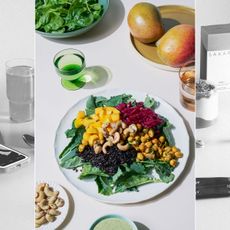 I Only Ate Sakara Life Meals for 30 Days—Here Are 7 Things That Happened
I Only Ate Sakara Life Meals for 30 Days—Here Are 7 Things That HappenedThe brand's 30-Day Fall Reset is finally here.
By Erin Jahns
-
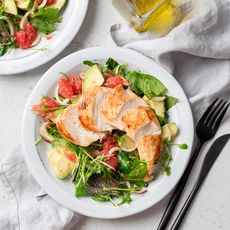 The 6 Warning Signs You're Not Getting Enough Protein
The 6 Warning Signs You're Not Getting Enough ProteinAnd what to eat to up your intake.
By Sarah Yang
-
 Everything This Professional Ballet Dancer Eats to Fuel Her For Performances
Everything This Professional Ballet Dancer Eats to Fuel Her For PerformancesHer grocery staples include high-quality French butter.
By Candice Aman
-
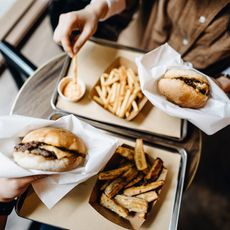 These 8 Foods Are the Worst for Rosacea—Here's What to Eat Instead
These 8 Foods Are the Worst for Rosacea—Here's What to Eat InsteadControl those flare-ups.
By Sarah Yang
-
 15 Things That Cause Bloating and How to Get Rid of It ASAP
15 Things That Cause Bloating and How to Get Rid of It ASAPTry these.
By Sarah Yang
-
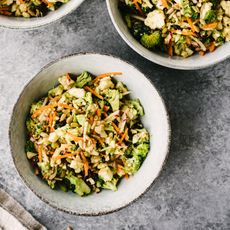 Is the Alkaline Diet Overhyped? What Experts Want You to Know
Is the Alkaline Diet Overhyped? What Experts Want You to KnowHere's how it works.
By Sarah Yang
-
 I'm an Imperfect Dietitian and My Key to Eating Healthy Meals Is Convenience
I'm an Imperfect Dietitian and My Key to Eating Healthy Meals Is ConvenienceTake a peek at my weekly grocery staples.
By Candice Aman
-
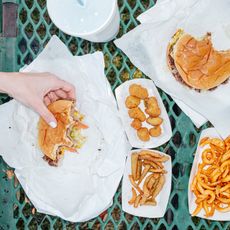 Avoid These 6 Foods—They'll Wreck Your Gut Health
Avoid These 6 Foods—They'll Wreck Your Gut HealthWhat to eat instead.
By Sarah Yang
